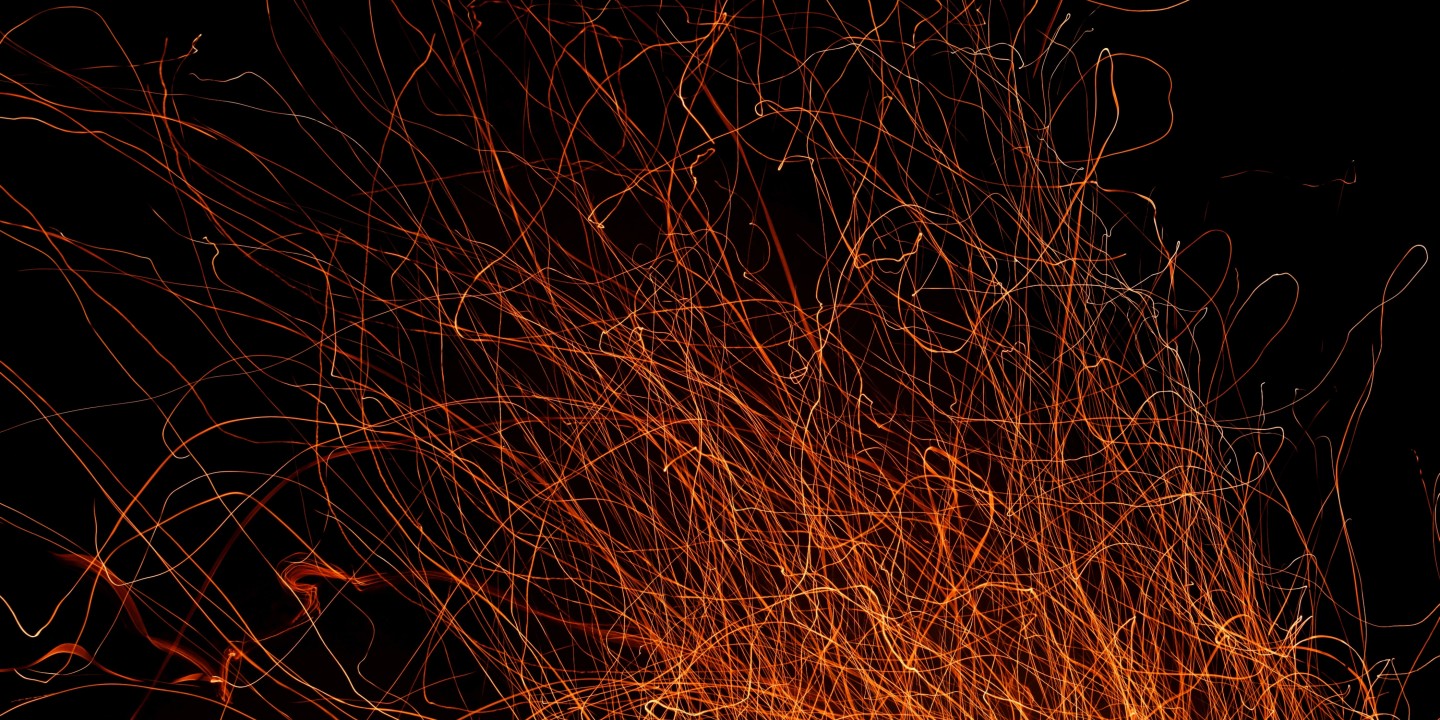How Augustine responded to the problem of evil without solving it
When we make sense of suffering, we lose our ability to protest against it.

There is an atheism that is entirely understandable. It is the hard-won atheism forged in suffering. Rather than an arrogance that imagines it has outgrown belief, such an atheism is an inability to believe born of empathy for those trod underfoot by the machinations of an inexplicable menace. This is not an atheism of comfort but of agony. It is the begrudging conclusion of cosmic loneliness arising from the experience of injustice.
This was the atheism of Albert Camus. We might even call it an Augustinian atheism, a regrettable conclusion reached after a long journey through what Camus called “the blood-stained face of history.” As he told the priests at the Dominican monastery on the Boulevard de La Tour-Maubourg in 1948, “I share with you the same revulsion from evil. But I do not share your hope, and I continue to struggle against this universe in which children suffer and die.” He also admitted: “I feel rather as Augustine did before becoming a Christian when he said: ‘I tried to find the source of evil and I got nowhere.’” Camus: Augustine sans grace.
Read our latest issue or browse back issues.
The irruption of evil, its inexplicability, the madness of suffering, plagues Camus. This weight hangs over The Stranger, the story in which Meursault inexplicably shoots an unnamed Arab man on the shores of Algiers. Why did Meursault do it? There is no answer, no explanation, no chain of causality that grants the crime a place in the world. Not even Meursault can answer the question. The crime, like evil, is a surd, its own perverted ex nihilo. Meursault tries to stop asking “whence?” and instead finds happiness in “the gentle indifference of the world.”
And yet the whence keeps finding us, keeps asking itself in and through us, a guttural discomfort coughed up like a bark. At other moments the question is asked in quiet dejection that borders on awe before an inscrutable mystery. We keep asking it because this evil still feels like a cosmic affront to placid joys that sneak up on us: a warm rain in summer twilight that leaves us laughing as we run home with friends; the furtive, fierce grasp of a newborn around her father’s finger; the way sunlight dapples the sand in a dune forest on the Michigan shore; the way your partner of thirty years still reaches for your hand.
Augustine was dogged by the question of evil from his youth. It drove him to the Manichaeans, and ultimately it’s why he left them, disappointed. His sojourn in skepticism was an attempt to stave it off. In Milan, as his defenses were breaking down, the question burbled up again: “Where and whence is evil? How did it creep in? What is its root and what is its seed?”
For Augustine, the question turns inward. Not only are the atrocities that others commit inexplicable; there is a dark mystery to the evil that drives his own behavior. Evil is out there, other, and it is in here, all too close and yet unfathomable. His heart is an abyss, and when he looks at the atrocities he commits, only a dark mystery stares back at him: “I became evil for no reason.” Meursault would look familiar to Augustine.
Augustine spent a lifetime grappling with this surd without cause. From his early work On Free Choice of the Will to the mature reflections in The City of God, Augustine keeps tackling the problem of evil. His point isn’t to identify the cause as much as it is to fight for an intellectual coherence that will allow him to hold two convictions in tension with integrity: the corrosive nature of evil that eats away at the world and the goodness of the God who made such a world.
When he points to free choice—to the misuse of the good will God created us with—it isn’t so much an answer, a solution, or an explanatory cause as it is a plausible halfway house with room to hold these things in tension, an anchor in the midst of the storm, a lighthouse that holds out hope as the waves of evil continue to roll. It’s an account of the mystery that gives us handles to hold onto without denying what we wish wasn’t true.
Augustine is not trying to make sense of evil. To make sense of it, to have an explanation for it, to be able to identify its cause, would mean that it has a place in the world. Evil is what ought not to be, the disorder of creation, the violation we protest. Evil has no place, no room to fit, no home here in a good creation.
When we fall prey to the hubristic need for intellectual mastery, we end up naturalizing evil and thus eviscerating it, undercutting the ability to protest against it. We can’t protest what is natural; we can’t lament what is meant to be. The price to pay for explaining evil is to give up naming and opposing it. As soon as we “explain” evil, it vanishes.
We also devalue or deny our intuitions of what ought to be—what is good and beautiful, what gratitude is for. When we try to extinguish the dark mystery of evil with the light of explanation, we simultaneously dim the radiance of beauty that befalls us unbidden. We forfeit the impulse to say “thank you”; we rule out the joy that attends those moments when we think, “This is how it’s meant to be.” We explain evil only to explain away love.
In his preaching, Augustine goes beyond the Neoplatonic frames and greater-good schemes. His sermons offer not an answer to evil, as if it were merely a problem or a question; instead, they offer a vision of the gracious action of God, who takes on evil. The cross of Christ—the incarnate God—is the site of a cosmic inversion where all that is not supposed to be is absorbed by the Son, taken to the depths of hell, and vanquished by the resurrection. Evil isn’t answered. It is overcome.
As Augustine put it in a sermon in 404, “he took flesh from the lump of our mortality, yes, and he too took to himself the death which was the penalty for sin, but didn’t take the sin; instead with the merciful intention of delivering us from sin, he handed over that flesh of his to death.” God doesn’t abstractly solve a problem; God condescends to inhabit and absorb the mess we’ve made of the world. God “has not abandoned humanity in its mortal condition.”
This, Augustine encourages his listeners, should serve as a source of hope in the face of fears and sorrows: “So he handed over this flesh to be slain, so that you wouldn’t be afraid of anything that could happen to your flesh. He showed you, in his resurrection after three days, what you ought to be hoping for at the end of this age. So he is leading you along, because he has become your hope.”
The appeal here is not to the greater good, the free choice of the will, or the constitutive nothingness of creation that corrodes the good. Augustine the pastor and preacher avoids such abstractions. Instead, he appeals to the mystery at the heart of the Christian faith: a humble God who endured evil in order to overcome it. The point isn’t that God has a plan; the point is that God wins. We shall overcome because of what the Son has undergone in our stead.
This isn’t an answer to evil; it is a response. Hope is found not in intellectual mastery but in divine solidarity. The cup Jesus drinks is the cup of our suffering, filled with a wine-dark sea of anguish. This is not some cosmic cost-benefit analysis in which God calculates “the greater good.” This is the historical scandal of God-become-flesh, taking the evil and injustice of the world—our evil and injustice—onto himself and then bursting forth from the grave to announce, as the Puritan John Owen put it, “the death of death.” God doesn’t give us an answer; he gives us himself.
This article is adapted from James K. A. Smith’s On the Road with St. Augustine: A Real-World Spirituality for Restless Hearts, just published by Brazos Press, a division of Baker Publishing Group, © 2019. Used by permission. A version of this article appears in the print edition under the title “Evil we can’t explain.”





